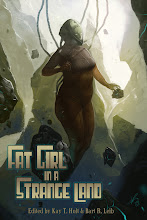Is your story ready? Is your craft ready? Are you ready?
This is something I have struggled with over and over again in various ways. Are my critique partners telling me the truth, are they the best people to evaluate my stuff? Have I done enough to polish my prose, explore the world of my story? Am I ready for the responsibilities of deadlines, edits, and networking?
Often, my answer is a resounding YES. But when I look back at this past year, at the queries I sent too soon, the submissions I sent out, fueled by optimism and impatience instead of assurance in my craft, I cringe a bit. I’m not alone. Writer Lydia Sharp had a poignant post on this topic recently.
Kidlit agent Mary Kole talked about the differences between Unconscious Incompetence, Conscious Incompetence, and Conscious Competence, Unconscious Competence in her post Dealing with Rejection.
Basically, when we start writing, we think we are awesome. Then we gain some perspective and realize, boy, we have a lot to learn. We work on our craft, get better, but it still feels forced. Every word is a trial. But the light at the end of the tunnel is mastery. I like to think I’m competent, but I am highly conscious of the effort needed to make my work shine. (And even then, I can’t be sure that it's not just my ego talking).
A science fiction slush reader weighed in with Lessons from the Slushpile: Good versus Great (a post I found thanks to a tweet by @elizabethscraig):
We see so many stories where if the author had taken a little more time, taken a step back from it, come back with fresh eyes and put in what was missing, it would have made all the difference. As writers, we’re in such a hurry to get it out the door that we get it to Pretty Good and submit. Pretty Good isn’t good enough.It’s painful, but true, especially knowing I jumped the gun on some of my projects. Rashness. But on the opposite end of the spectrum is perfectionism. Agent Scott Eagan suggests that some writers hold back sending out their stuff not because the story’s not ready but because they aren’t ready to move forward in their writing. We tinker, we obsess over details, we want everything to be just so.
Maybe we stick with our stories too long. SciFi author Juliette Wade’s post When do you walk away? And how do you know when to come back? presents a thoughtful discussion of factors to consider when deciding how to move forward with (or move on from) a story.
The writing blogosphere is rife with overnight success stories—you know, the people who just decided Hey, I’m going to write a book and never hit a roadblock before hitting the bestseller list. While I’m glad people are writing and selling books, all the backslapping can be discouraging to those still slugging away in the trenches. That’s why it was so refreshing to stumble upon this interview with author Jay Lake via the blog Dancing with Dragons is Hard on Your Shoes. As Mr. Lake points out:
What made me interesting to my agent wasn’t that I was at the right convention, in the right bar or knew the right people. It’s that when we were introduced, and she asked, I had projects to discuss and a publication history she could review to see if she liked my work. There was serendipity in our original connection, but everything else flowed from the years of hard work I’d already put into writing and marketing my fiction. […] Keep moving, keep working.
Without that base of effort, without that production, all the marketing and networking in the world won’t do you any good. You can succeed as a published author without marketing if your work is strong enough. Lacking the work, there is no success as a published author.How do you know if you are ready?
What are you doing to be ready?
***
Next week look for a Resource Roundup post on Openings, as I’ve been immersing myself in the subject (again) as a result of attending the WD webinar Start Your Story Right: How to Hook an Agent with Your First Pages last week.









No comments:
Post a Comment